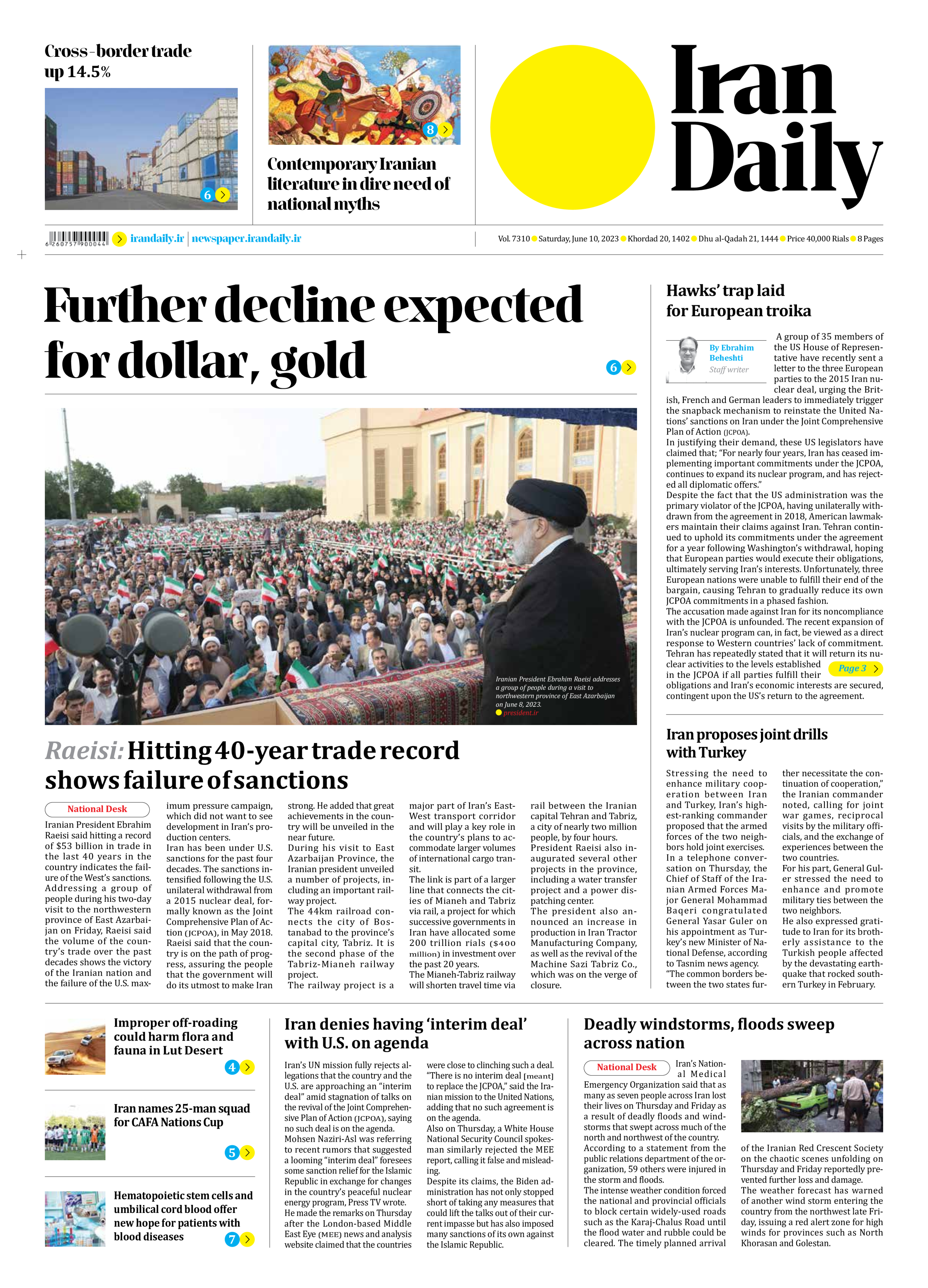
Hawks’ trap laid for European troika
Staff writer
A group of 35 members of the US House of Representative have recently sent a letter to the three European parties to the 2015 Iran nuclear deal, urging the British, French and German leaders to immediately trigger the snapback mechanism to reinstate the United Nations’ sanctions on Iran under the Joint Comprehensive Plan of Action (JCPOA).
In justifying their demand, these US legislators have claimed that; “For nearly four years, Iran has ceased implementing important commitments under the JCPOA, continues to expand its nuclear program, and has rejected all diplomatic offers.”
Despite the fact that the US administration was the primary violator of the JCPOA, having unilaterally withdrawn from the agreement in 2018, American lawmakers maintain their claims against Iran. Tehran continued to uphold its commitments under the agreement for a year following Washington’s withdrawal, hoping that European parties would execute their obligations, ultimately serving Iran’s interests. Unfortunately, three European nations were unable to fulfill their end of the bargain, causing Tehran to gradually reduce its own JCPOA commitments in a phased fashion.
The accusation made against Iran for its noncompliance with the JCPOA is unfounded. The recent expansion of Iran’s nuclear program can, in fact, be viewed as a direct response to Western countries’ lack of commitment. Tehran has repeatedly stated that it will return its nuclear activities to the levels established in the JCPOA if all parties fulfill their obligations and Iran’s economic interests are secured, contingent upon the US’s return to the agreement.
Unfortunately, the US has yet to make the necessary move, and the diplomatic exchange between the two nations regarding nuclear talks remains ongoing.
However, Iranian officials have reported that cooperation between the Atomic Energy Organization of Iran and the International Atomic Energy Agency has entered a new phase, characterized by constructive collaboration.
Recent developments are indicative of a shift in the dynamic between Iran and the IAEA, with constructive collaboration supplanting political posturing. This new atmosphere was highlighted at a recent meeting of the agency’s Board of Governors, which was notably different from previous gatherings. Despite this positive trend, there are concerns that certain American lawmakers are attempting to undermine cooperation between Tehran and the agency by suggesting anti-Iranian resolutions.
It is imperative that the European troika, with their considerable experience in dealing with Iran, do not succumb to such non-constructive pressure. Iranian officials have stated that the repeated suggestion of triggering the snapback mechanism represents a miscalculation, capable of rapidly causing things to spiral out of control and driving both sides further apart.
The proposed snapback mechanism appears to be motivated, at least in part, by the imminent lifting of certain nuclear and non-nuclear restrictions imposed on Iran under the JCPOA.
These restrictions are slated to end in October 2023 and include lifting limitations on ballistic missile production research and development, ending sanctions on previously suspended Iranian economic sectors, eliminating sanctions on certain individuals and institutions tied to Iran’s nuclear program, and requiring the European Union to remove remaining sanctions related to Iran’s nuclear program.
The execution of the snapback plan, which could result in the reinstatement of all previously lifted UN sanctions against Iran, threatens to prevent the potential relaxation of restrictions outlined in the nuclear deal.
Given the current situation, there appears to be little justification for Tehran to continue collaborating with the IAEA or engaging in negotiations aimed at resolving disputes.
Responsibility for any subsequent events will likely fall on the United States and the European trio. The Iranian Foreign Ministry previously underscored this point, noting that Western parties have received a clear message regarding Iran’s response to a possible snapback of UN sanctions.
For this reason, it is imperative that the European troika remain vigilant and aware of the potential influence of US hawks or Israeli pressure, as well as the negative consequences that could result from implementing the non-productive snapback mechanism.







